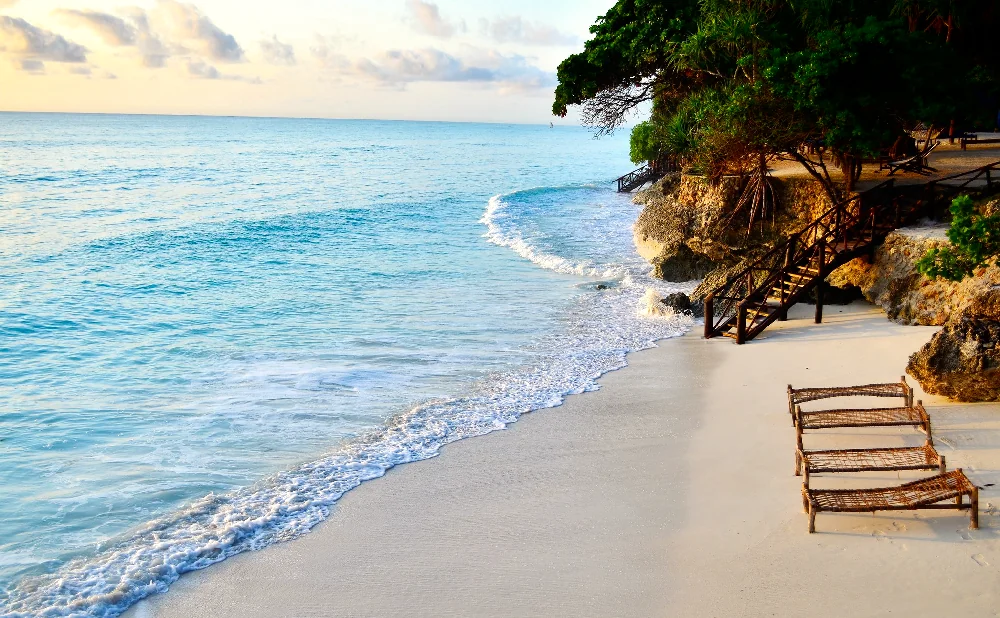The Vibrant Coral Reefs and Marine Life of Zanzibar
Introduction to Zanzibar's Marine Ecosystem
1. Geographic and Ecological Significance:
-Zanzibar, an archipelago off the coast of Tanzania, is renowned for its stunning coral reefs and rich marine biodiversity.
-The surrounding waters of the Indian Ocean provide an ideal environment for coral growth, making Zanzibar a top destination for marine enthusiasts.
The Coral Reefs of Zanzibar
1. Coral Reef Formation and Health:**
-Zanzibar's coral reefs are part of the larger East African coral reef system, known for its extensive and diverse formations.
-The reefs are primarily fringing reefs, which grow close to the shore and create a protective barrier for the coastline. These reefs thrive in the warm, shallow waters of the Indian Ocean.
2. Popular Coral Reefs:
-Mnemba Atoll: One of the most famous snorkeling and diving spots, Mnemba Atoll is a marine reserve known for its crystal-clear waters and abundant marine life. The atoll's coral gardens are home to a myriad of colorful coral species and a diverse range of fish.
-Chumbe Island Coral Park: A private nature reserve, Chumbe Island boasts pristine coral reefs that are protected and well-preserved. This area is ideal for both novice and experienced snorkelers and divers.
Diverse Marine Life
1. Fish Species:
-Zanzibar's reefs are teeming with a variety of fish species, including angelfish, butterflyfish, parrotfish, and clownfish. These vibrant fish contribute to the colorful underwater spectacle.
-Larger species such as groupers, barracudas, and trevallies are also commonly spotted, adding to the excitement for divers.
2. Marine Mammals and Turtles:
-The waters around Zanzibar are home to several species of dolphins, including the bottlenose and humpback dolphins, which are often seen on boat trips and while diving.
-Sea turtles, including the green turtle and hawksbill turtle, are frequently encountered on the reefs, particularly during their nesting seasons.
3. Other Marine Creatures:
-Zanzibar's reefs host a variety of invertebrates such as octopuses, squid, and various species of crabs and lobsters.
-The reefs are also inhabited by fascinating creatures like the moray eel, lionfish, and the elusive stonefish, which divers and snorkelers often seek out for their unique appearances and behaviors.
Snorkeling and Scuba Diving Experiences
1. Snorkeling Adventures:
-Snorkeling in Zanzibar is accessible and rewarding, with many sites offering shallow reefs close to the shore. The calm, warm waters and excellent visibility make it easy to observe the vibrant coral gardens and marine life.
-Popular snorkeling spots include the reefs around Nungwi and Kendwa, as well as the protected areas of Mnemba Atoll and Chumbe Island.
2. Scuba Diving Excursions:
-Zanzibar offers world-class diving experiences, with dive sites catering to all levels of expertise, from beginners to advanced divers. Dive centers and operators provide guided dives, equipment rental, and courses.
-Notable dive sites include the "Big Wall" at Mnemba Atoll, known for its dramatic drop-offs and large pelagic species, and the wreck of the "Great Northern," a fascinating site for wreck diving enthusiasts.
Conservation Efforts
1. Marine Reserves and Protected Areas:
-Several marine reserves and protected areas have been established to conserve Zanzibar's coral reefs and marine life. These areas restrict fishing and other activities that can damage the delicate marine ecosystem.
-Examples include the Mnemba Island Marine Conservation Area and the Chumbe Island Coral Park, both of which have been instrumental in preserving marine biodiversity.
2. Community and Ecotourism Initiatives:
-Local communities and organizations in Zanzibar are actively involved in marine conservation efforts. Initiatives include coral reef restoration projects, sustainable fishing practices, and educational programs to raise awareness about marine conservation.
-Ecotourism is promoted as a means to support conservation while providing economic benefits to local communities. Responsible snorkeling and diving practices are encouraged to minimize the impact on the reefs.
Conclusion
Zanzibar's vibrant coral reefs and diverse marine life make it a top destination for snorkeling and scuba diving enthusiasts. The island's rich underwater ecosystem offers unforgettable experiences, from exploring colorful coral gardens to encountering a wide array of marine species. Conservation efforts and sustainable tourism practices are crucial to preserving this marine paradise for future generations to enjoy. By choosing Zanzibar for their marine adventures, visitors not only experience the beauty of the underwater world but also contribute to the ongoing protection of these precious natural resources.
